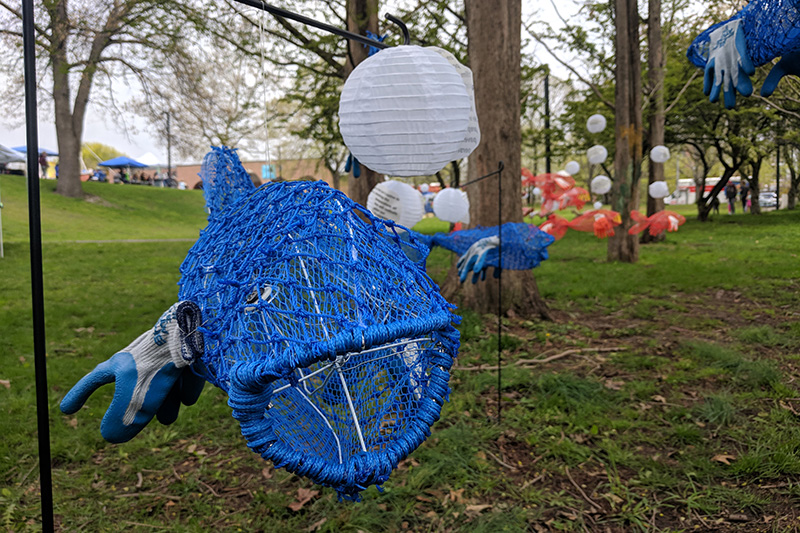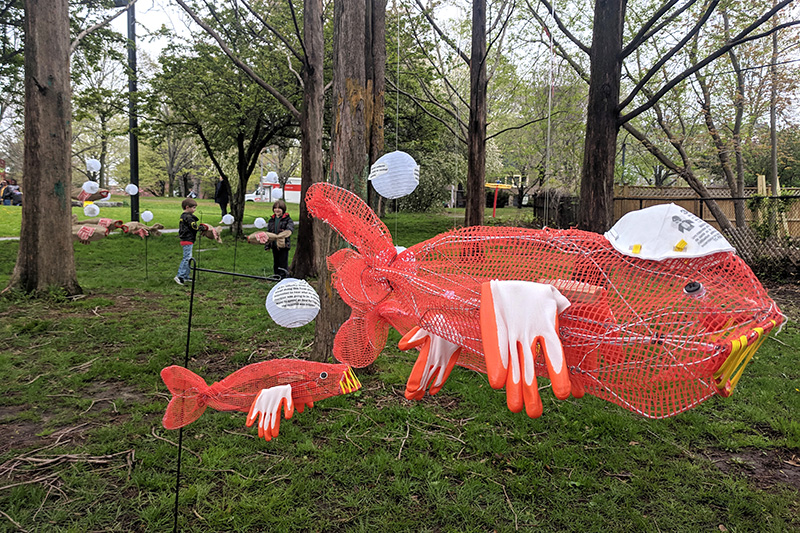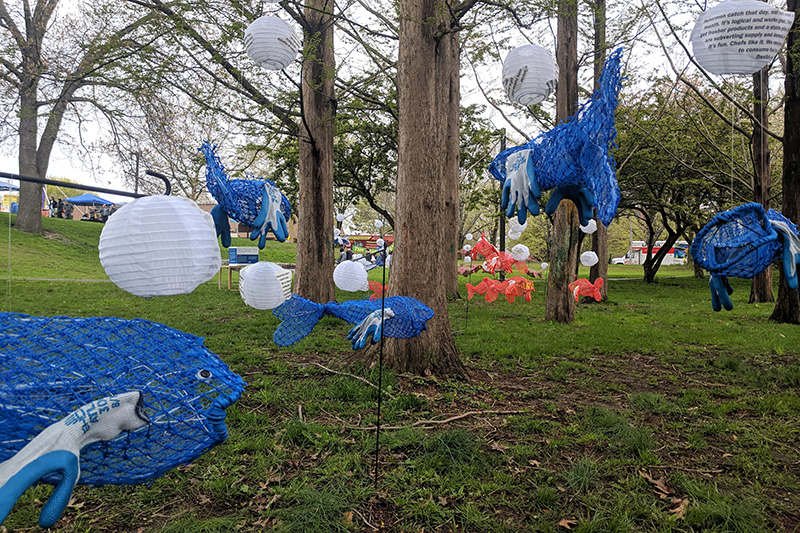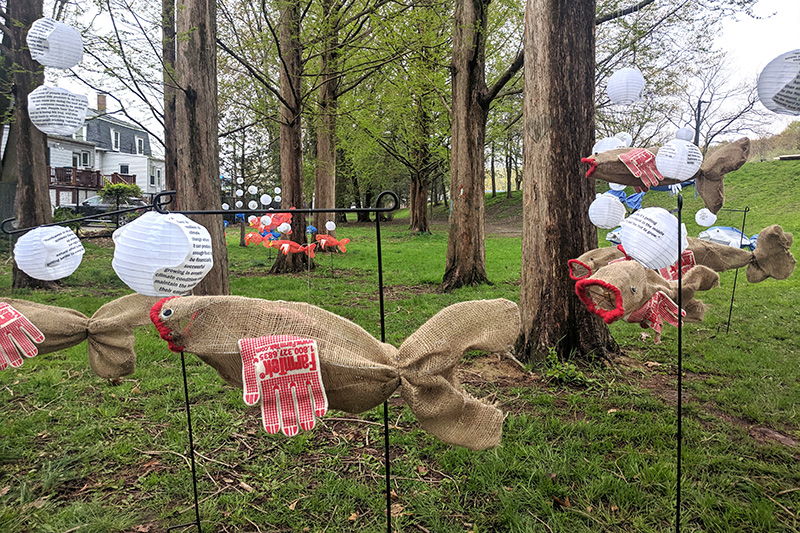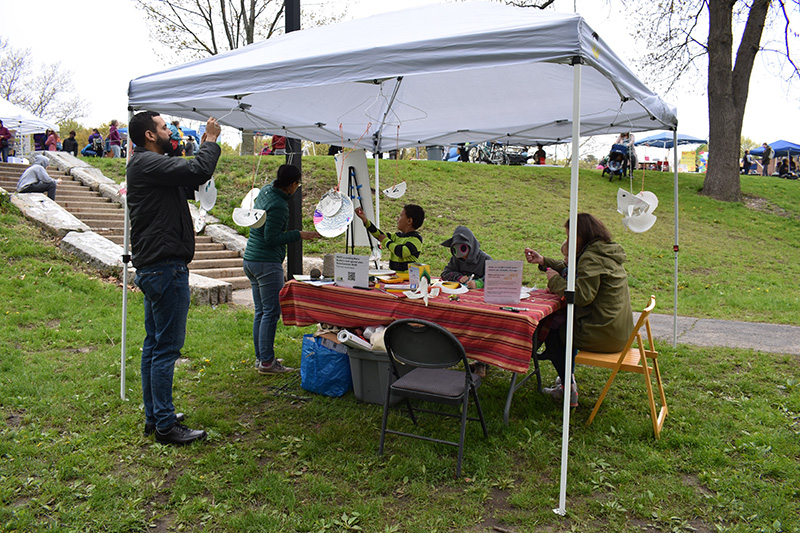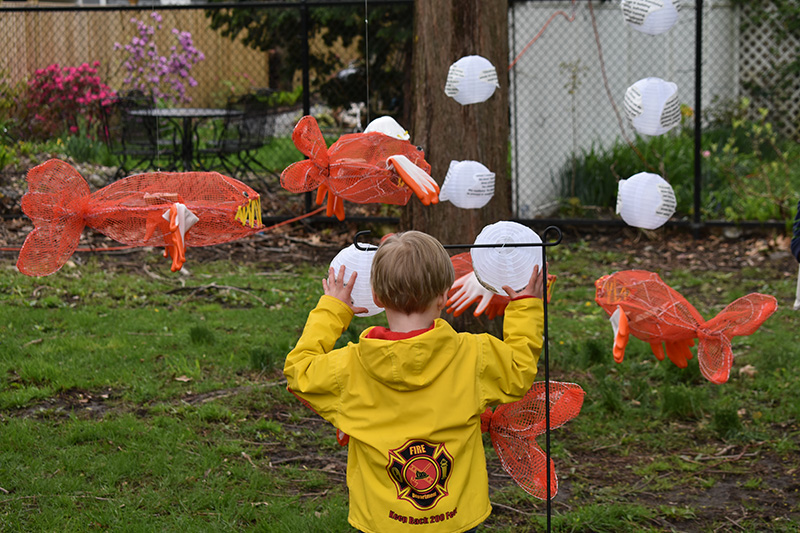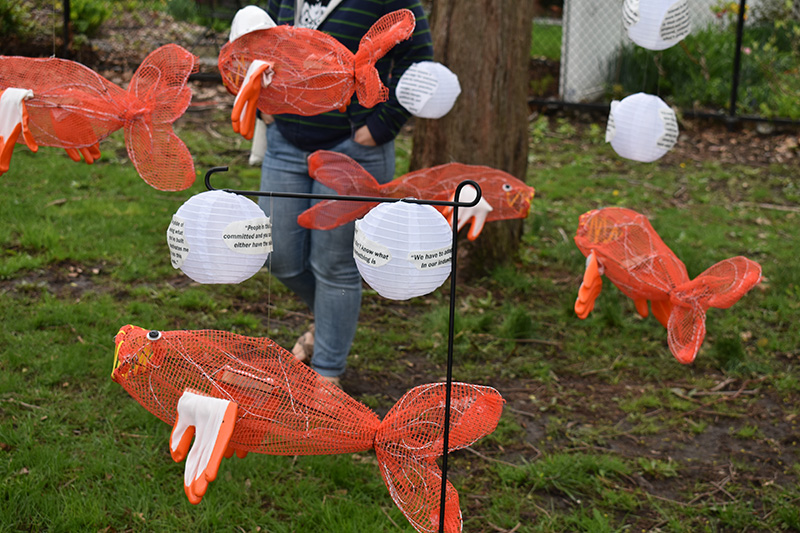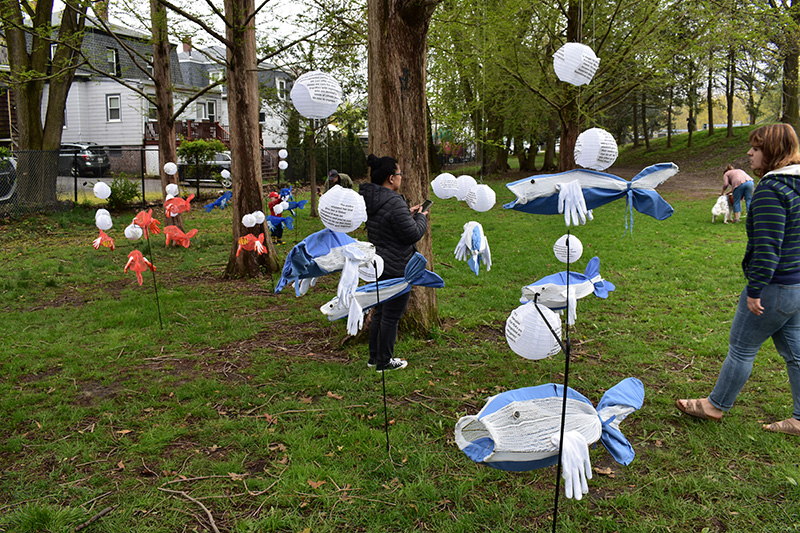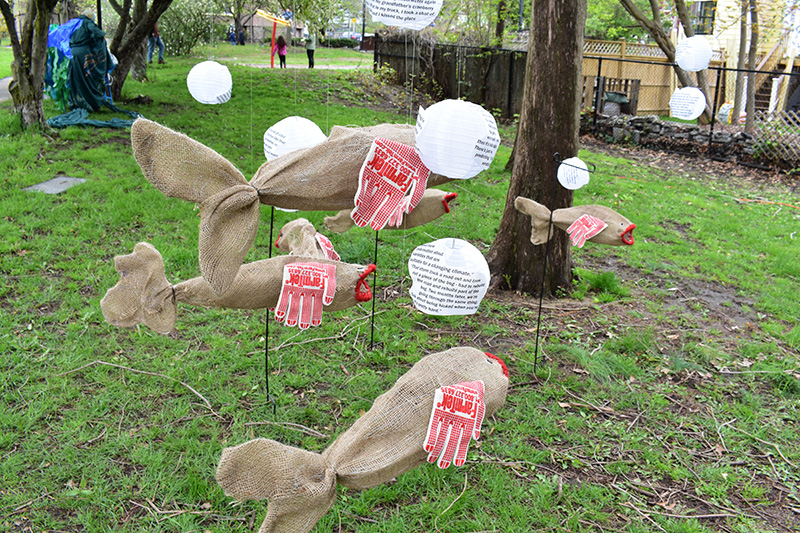Climate change is already visible across the Metro Boston region, forcing individuals and communities to cope with increasingly severe weather, unpredictable harvests and workplace conditions, and greater risks from vector-borne and heat-related illnesses. MAPC’s newest art installation “Schools of Thought on Climate Change: Stories from Land and Sea,” integrates storytelling with public art to show unique perspectives on climate change and actions people are taking in their workplaces and communities to prevent, prepare for, or adapt to climate change.
The installation was first featured at the Wake Up the Earth festival in the Jamaica Plain neighborhood of Boston in May 2019. “Schools of Thought on Climate Change” shares quotes from focus groups recently completed with workers from the farming, construction, fishing, and home health care fields about the role of climate change in their industry
MAPC’s Hortense Gerardo, Carolyn Lewenberg, and Daniel Koff came up with the idea for the project: sculpted hanging koi-inspired fish fashioned from materials in each industry. Koi fish symbolism is common in both Japanese and Chinese culture. They are often associated with ideas of determination and resilience in the face of adversity, given their ability to swim against currents and travel upstream.
Members of MAPC’s public health, economic development, and arts and culture departments worked with Lewenberg and artist Nia Holley, who together crafted four separate groups of fish using gloves and materials from each industry: for example, burlap for farmers, gauze and scrubs for home health care workers, fishing nets for those in the fishing industry, and orange safety netting for construction workers.
In the installation, the koi hang among lanterns printed with quotes from the focus groups. Viewers can read how climate change effects people’s livelihoods: species migration, storm damage to soils and equipment, power outages, and extreme heat risks to both outdoor workers and consumers of home healthcare. Viewers can also learn about actions people are taking to respond and prepare: clean energy adoption, worker safety training, and partnering with institutional buyers to develop markets for new seafood products, including invasive species. In the future, the installation will include an audio component: people will be able to hear from focus group participants in their own voices.
The installation supplements a project led by MAPC’s Public Health team in collaboration with Economic Development and Arts and Culture, which worked with the Massachusetts Chapter of Associated Builders and Contractors, the Harvest New England Conference, 1199 SEIU United Healthcare Workers East, and Red’s Best wholesaler to assemble focus groups and ask them about their perspectives on climate change. Look out for a full report in the coming months!
Check out photos from the installation in the slideshow above or the gallery below!



